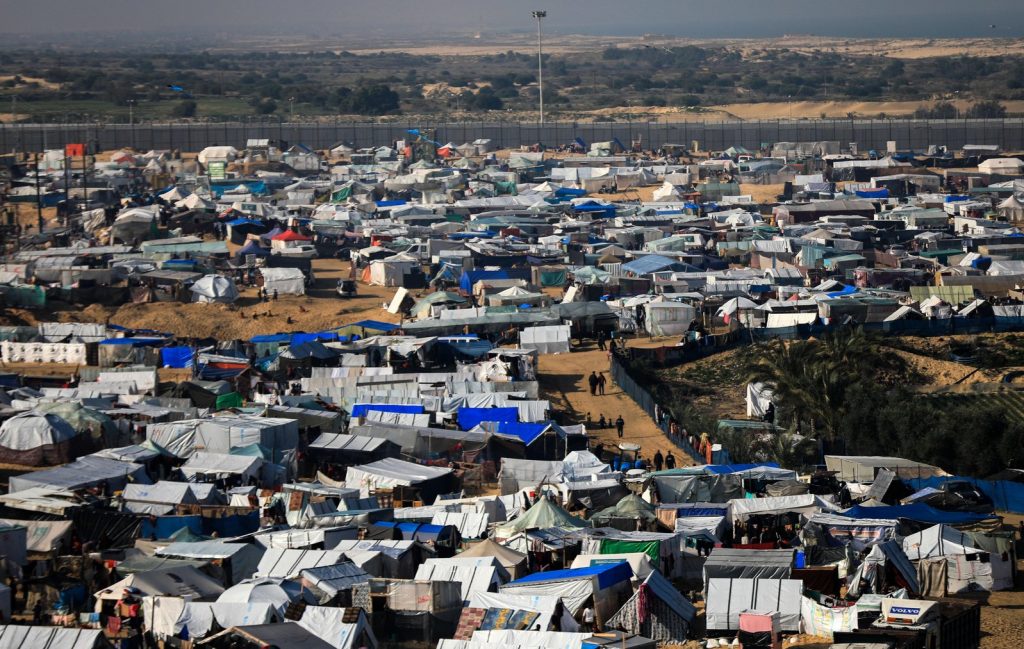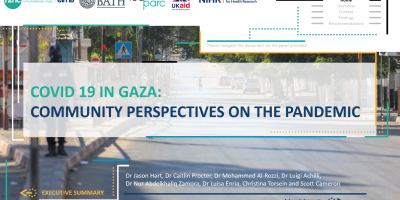Gaza Crisis
The repercussions of armed conflict, mass forced displacement and growing food insecurity in Gaza are compounded by barriers to the supply and delivery of humanitarian assistance and the inability of a collapsed health care system to cater to the needs of a large population grappling with injuries and illnesses.
In a context where critical life-saving assistance is hardly reaching populations, Palestinians in Gaza overwhelmingly rely on family members and community support. Resilience and coping abilities are, however, exhausted, emphasizing the urgency of immediate intervention.
An immediate ceasefire is imperative to secure the protection of civilians and enable the delivery of vital humanitarian aid. A de-escalation and cessation of violence and aggression is required for the adequate provision of humanitarian relief, with strict adherence to International Humanitarian and Human Rights laws.
This collection aims to foreground perspectives from humanitarians, social scientists and public health specialists responding to the ongoing war on Gaza. It collates resources on relevant emerging social science evidence as well as past social science research, shedding light on both protracted and newly emerged vulnerabilities underpinning the realities of delivering aid in the changing context of Gaza. It also includes on-the-ground experiences and emerging practices from the field.

Political economy
Palestine – The political economy of Gaza – responding to economic vulnerability, 28 September 2021
Is aid sustaining Palestine’s occupation?
Gaza Up Close
Palestine: Water crisis in the Gaza Strip
Gaza war: expected socioeconomic impacts on the State of Palestine
The Political Economy of Health in the Gaza Strip (Occupied Palestinian Territory)
‘Pity the region’* – Gaza and the politics of health in the Middle East
Violence in Palestine demands immediate resolution of its settler colonial root causes
Vulnerability and resilience
Gender Relations and Power Dynamics in WFP Palestine Beneficiary Households Study – WFP and UN Women 2022
Gender alert: The gendered impact of the crisis in Gaza
Participatory Vulnerability Analysis in the North of the Gaza Strip
Gaza conflict: how children’s lives are affected on every level
Health crisis and health systems
War in the Gaza Strip: Public Health Situation Analysis
Social and political determinants of health in the occupied Palestine territory (oPt) during the COVID-19 pandemic: who is responsible?
The Political Economy of Health in the Gaza Strip (Occupied Palestinian Territory)
On the Brink: War and Public Health in Gaza
The Humanitarian Health Effects of the Israel-Hamas War Among Gaza Civilians
State of the health-care system in Gaza during the Israel–Hamas war
From Israel’s Blockade to the Siege on Al Shifa Hospital: Public Health in Gaza
Famine expert Alex de Waal on Israel’s starvation of Gaza
Frequently asked questions on ICRC’s work in Israel and the occupied territories
Mental health and psychosocial support
Beyond Grief: To Love and Stay with Those Who Die in Our Arms
Coping with trauma and adversity among Palestinians in the Gaza Strip: A qualitative, culture-informed analysis
Trapped: The impact of 15 years of blockade on the mental health of Gaza’s children
Psychosocial concerns in a context of prolonged political oppression: Gaza mental health providers’ perceptions
Notes from the field
Voices from Gaza
A Palestinian Poet’s Perilous Journey out of Gaza
“Stop the war and let me return to my home, even if it is destroyed.” Community priorities and perceptions of aid and support in Gaza (January 2024)




Social science perspectives
The attack on Gaza and the role of anthropologists
War on Palestine
The Anthropological Rise of Palestine
Voices from Gaza
Language Is a Powerful Weapon in the Israel-Palestine Conflict
Tectonic Shifts: A conversation with Darryl Li
Contextualising Gaza: Colonial violence and Occupation
In the face of genocide, the intifada must be globalised